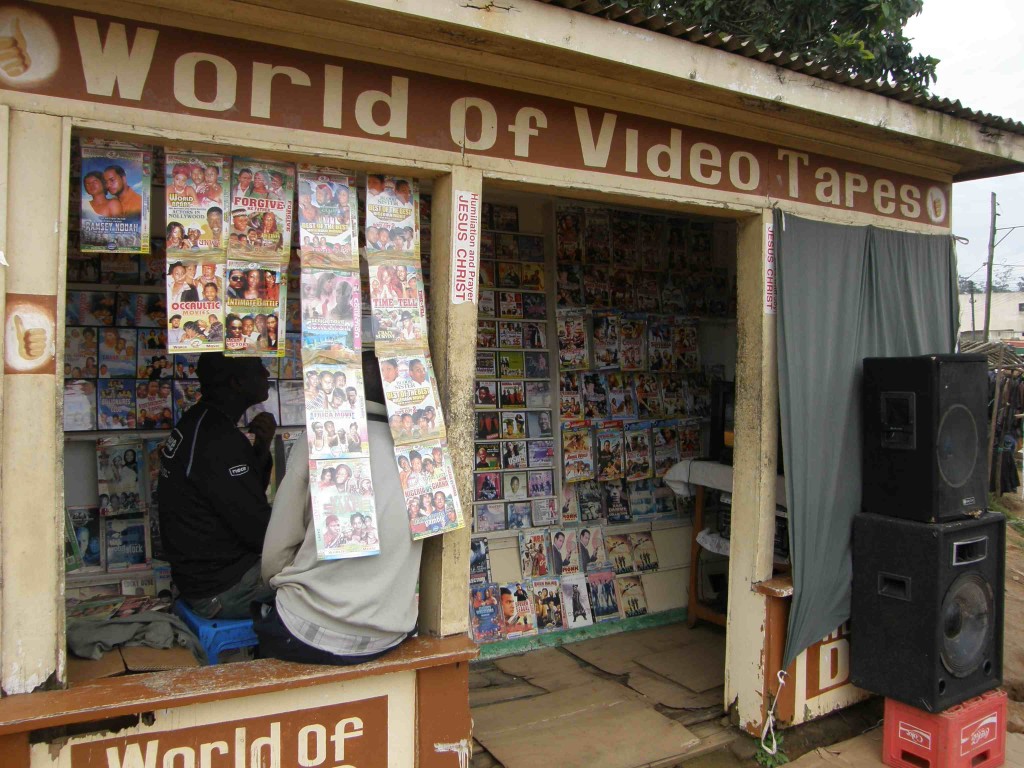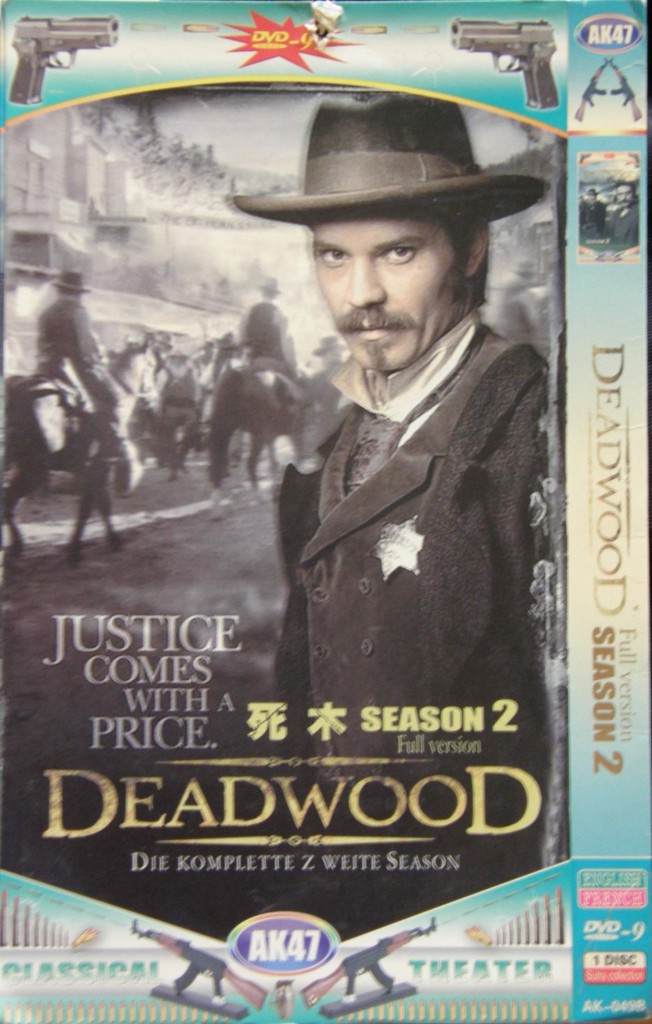Chinese Deadwood in Malawi
Following on from two previous posts of mine about selling Lost in Malawi, I wanted to share the cover copy on a pirated DVD of Deadwood Season 2 that I found there. A couple of comments on marketing, piracy, and globalization follow afterward:
Dawn dawn of the desert, this barbarian and the settlement of the fugitives in the spring of 1877 a lot of changes. Many of the new immigrants arriving and gradually improve the management of refugee camps so that the original vitality of the town. With the At the same time, the atmosphere gradually diffuse crime, money and driven by the desire of the people here, and all of this is that the wonders of Deadwood …
Description story of the history of the United States of gold surges, a snatch and the greed of the story to focus on border towns in the United States and that its illegal border in the relentless forces of competition. This is illegal colonial towns, an violence and not uncivilized outpost, the colorful personality to attract people to order — from being deprived of legal protection and entrepreneurs to former soldiers and Qiaozhazhe, Chinese laborers, male prostitution. these people on the bizarre story, as this evil town.
Quite the joyride through language, no? And yet, if one can get beyond laughing at the grammar and feeling superior, I’d pose that this is no less functional than anything you’d read on the back of an official DVD. It’s the words that matter, but only the words – at the end of this, we know Deadwood is about the United States, illegality, civilization/barbarity, borders, beginnings/newness/dawn, an evil vital town, color and personality, gold, greed, cultural clashes, and so forth. Proper grammar might actually get in the way, from this standpoint, backing away from punching the key words and retreating instead to a boring narrative that wouldn’t necessarily capture the exuberance that the above copy does. It’s beat poetry, not much different from the “marvel,” “wonder,” “violent masterpiece” that we might see quoted all over another poster. Maybe sentences get in the way of selling?
More importantly, though, and changing gears, I want to note that this, as with many/most of the pirated DVDs here, originated in China, which might explain the otherwise somewhat odd privileging of “Qiaozhazhe, Chinese laborers.” And thus we’re actually seeing how Chinese pirates are attempting to sell the show, not how Malawians think other Malawians will be drawn in. This is an important twist, since it shows the role that Chinese pirates are playing as taste-makers and cultural intermediaries. I continually wanted to know how stuff gets into Malawi and what is chosen. Why, for instance, could I buy 24, Prison Break, Primeval (go Brit shows!), Lost, Desperate Housewives, or at one storefront Monk (?!), but not much else? Why Deadwood Season 2, but never Seasons 1 or 3? Usually the answer to this question in global media studies has been because Hollywood forced it into the market. But here it’s because Chinese pirates sold it to Chinese dealers in South African who sold it to one of a very few guys from Blantyre, Malawi, who make frequent trips to Johannesburg, then disseminate the DVDs across the rest of Malawi. Hollywood’s official presence in Malawi is next to nil, and though its unofficial presence is significant, it’s via China and South Africa.
As far as any of the dealers could tell me, the Chinese pirates know nothing about Malawi, and they seem to know only marginally more about South Africa (DVDs with movies about Apartheid abound, albeit with odd titles like “The Roots of Slavery” or “Wild Africa”). The dealers also told me they have little if no role in deciding what gets pirated; indeed, most only knew what their store and their competitors’ sold. So the Chinese pirates aren’t truly responding to demand; rather, they’re offering a standardized product that sells around the world (note the “Qiaozhazhe” clearly intended for a Chinese audience). This produces a significantly more complex model of global media flow (and moreso of cultural imperialism) at play, especially when one realizes that a lot of Malawians see their TV in “video shows” (who buy from the DVD dealers) or privately off DVD players; hence, the pirates’ version is culturally dominant.
My mind’s still spinning about what this means, and I present this as a field note, not as a completed thought; I hope that others might have some thoughts about what all this means and whether it might shift some of our thinking about global media flows and the cultural intermediaries that make them work.





The unofficial circulation of media content is, to me, an understudied aspect of globalization. Along these lines, yesterday’s NYT coverage of Sarkozy’s attempts to expel Roma camps from France included a brief detail of the group’s unofficial economy: salvaging and restoring television sets, selling them to Africans in France, who then export them to Africa.
It makes me wonder what this, and your examples of pirated DVDs, change about our notions of globalization (does this refocus us on “lesser” players involved in production/consumption of content and material goods? move us beyond a more typical scenario of, say, US-China relations and official economies? and, if so, what do we learn?) and about the function of “Africa” as a conceptual and linguistic holding place (or absence) in these convoluted translations of media content and transferals of material goods. (I realize this is all somewhat tangential, but your report got me thinking along these lines.)
I look forward to seeing where your findings will land you.